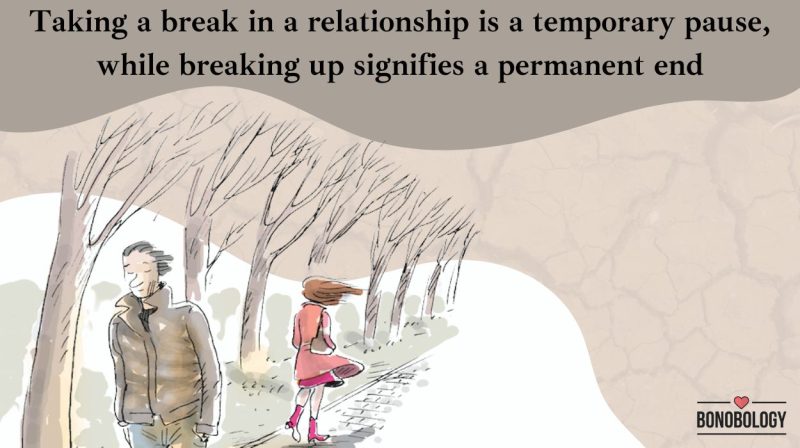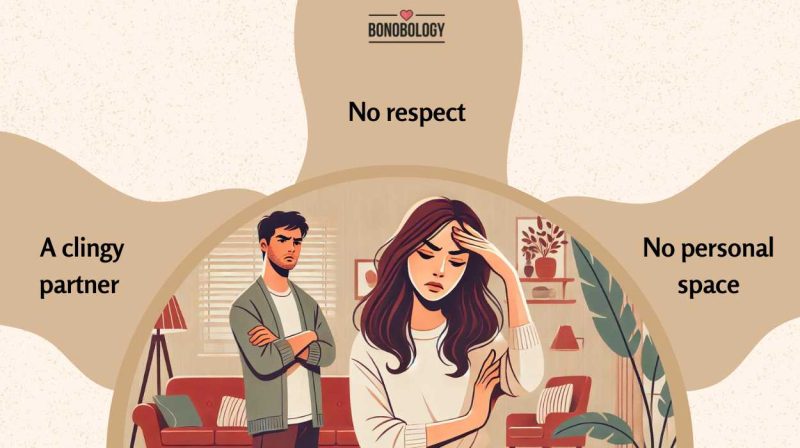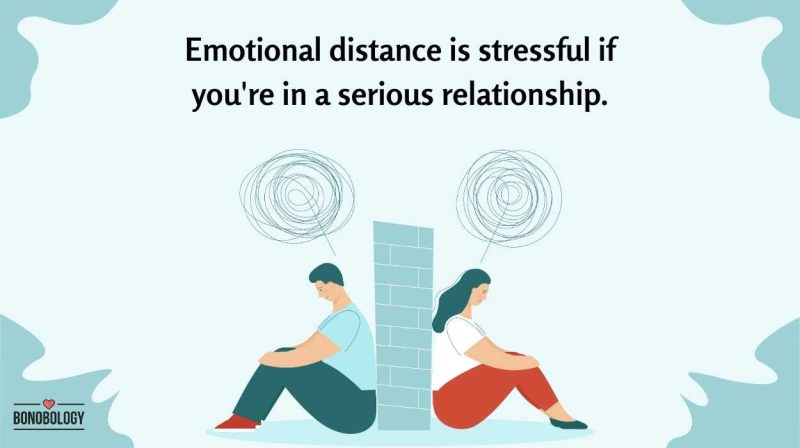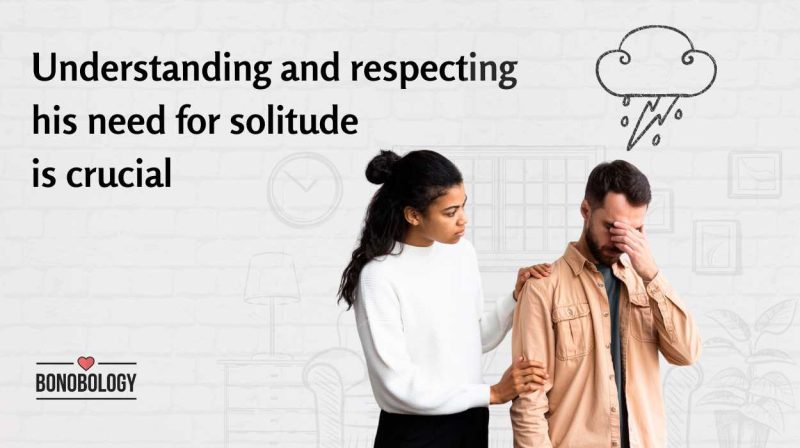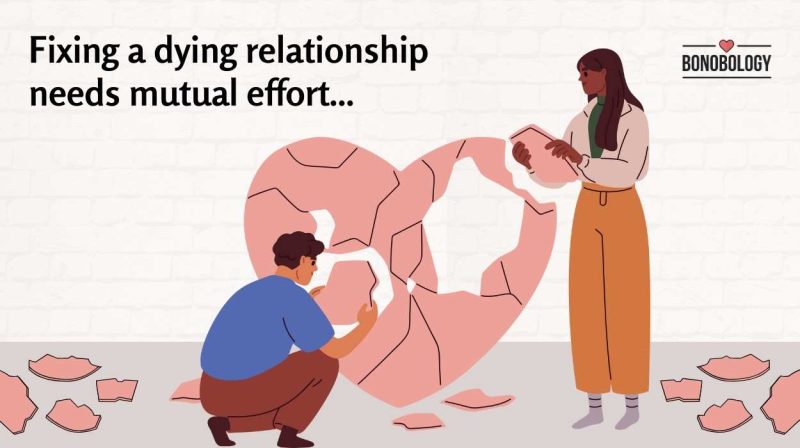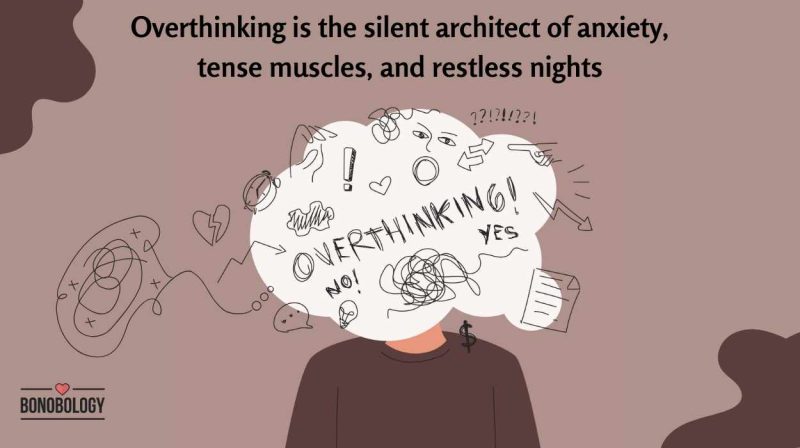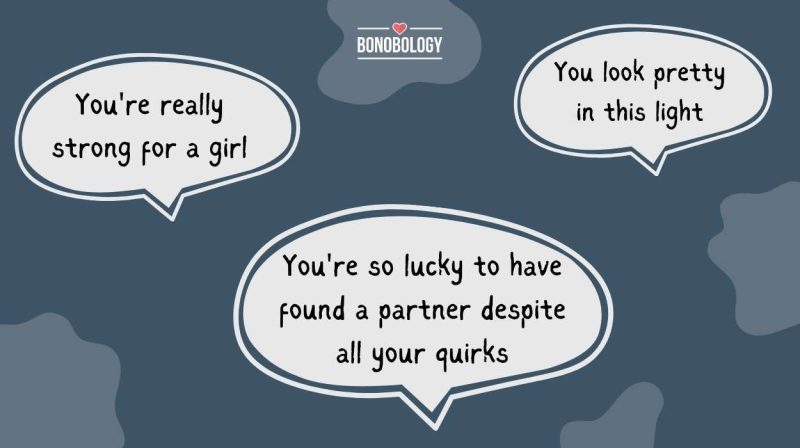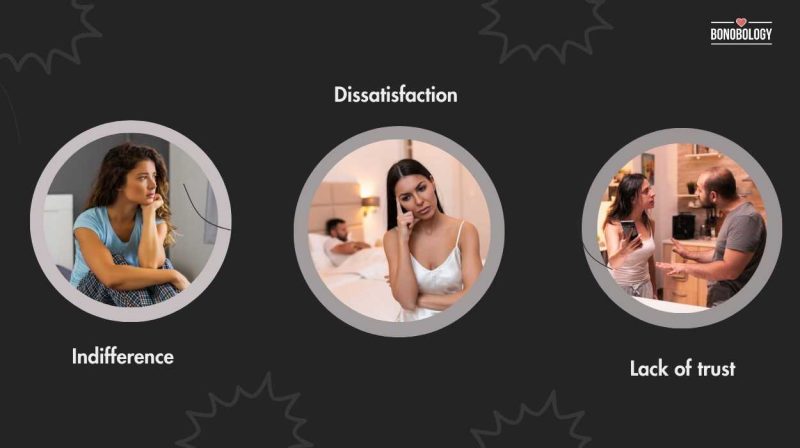Ever met someone who blew you away and you ended up misconstruing the infatuation as love? Maybe you even convinced yourself that you had met your soulmate. But when you realize you were just looking at the red flags through rose-tinted glasses, your world may come crashing down around you. Understanding the difference between limerence vs love can help you make sure this doesn’t happen to you.
But how exactly do you go about trying to figure out limerence vs love difference when you’re too busy being stuck in a phase of never-ending adoration? In the midst of your obsession, you may not even realize the harm you’re causing yourself.
So, what is limerence? Does limerence turn into love? Let’s take a crack at everything you need to know with insights from clinical psychologist Devaleena Ghosh (M.Res, Manchester University), founder of Kornash: The Lifestyle Management School, who specializes in couple counseling and family therapy.
What Is Limerence?
Table of Contents
Before we get into limerence vs. love, it’s important to know what the former means. “To a limerent person, a relationship with another human being is an object relationship. They look at others as objects of love, not as humans,” says Devaleena. Limerence can be best described as a state of mind when a person experiences all-consuming thoughts about another, often to the point where it leads to an unhealthy obsession that results in them neglecting their own needs.
Think of it this way: it’s infatuation…times a hundred. Remember the blossoming of a sweet romance that left you daydreaming about spending time with that person? Imagine that state of mind, but that’s the ONLY thing you’ll think about. Though it may seem like it, Devaleena tells us that limerence isn’t really about another person. What’s disguised as “love” is nothing more than a ploy to fulfill the damaging wants a person has. “It’s not so much about the other person or the feelings or even emotions, it’s about filling the void.”
In her book Love and Limerence: The Experience Of Being In Love, Dorothy Tennov coined the word “limerence”, describing it as “an acute longing for emotional reciprocation, obsessive-compulsive thoughts, and emotional dependence on another person.” Calling it a case of codependency in a relationship would be a huge understatement.
Stages Of Limerence
Living with limerence in a relationship is not easy on the limerent person. To be able to catch limerence early, or manage it, it can help to understand its stages or the cycle of limerence. Limerence goes through three typical phases, akin to the stages of love or any romantic relationship.
1. Infatuation stage
American psychologist and marriage therapist Dr. John Gottman calls the first stage of a romantic relationship as the “falling in love” stage. Be it a limerent attachment or otherwise, the first stage of attachment is characterized by symptoms akin to limerence. One gets hit by an overload of hormones and chemicals that heighten how one feel about the other person. The strong desire makes it very easy to overlook any red flags. Again, this is true for all kinds of romantic relationships, limerent or healthy.
But in the case of a limerent relationship, in this stage, a person is driven by the desire to get closer to the object of their desire or LO (Limerent Object) irrespective of the response or feedback received from them. The limerent wants to spend more time with them and build a connection to feel safe. Limerence vs infatuation is difficult to differentiate in the first stage as they both seem alike. The difference becomes clearer as the relationship progress.
2. Crystallization stage
In a healthy relationship, by the second stage, infatuation seems to die down as partners slowly and gradually come to face challenges and resolve conflicts together. Either they wade through the conflicts successfully and learn to accommodate the differences and strengthen their bond or the love is lost and only conflicts remain.
But in the case of a limerence attachment, in this stage, the facade of love and the rosy picture of romance is held on to even more steadfastly. The limerent person does everything in their power to make sure red flags are ignored. In a nutshell, the limerence is crystallized even further and its symptoms are stronger than ever.
3. Deterioration stage
In a healthy relationship, by the third stage, partners have built a certain level of commitment toward each other. After having to learn to effectively deal with conflict, their partnership becomes stronger. At this stage, a healthy relationship feels the most stable and joyful.
But in an unhealthy limerent attachment, this phase is aptly called as the deterioration phase. Limerence almost always ends at a certain point after the limerent person gradually begins to get disillusioned with the limerent object and faces reality, or has to deal with the never-ending disappointment and rejection from unrequited limerence. Getting over limerence is not a choice but comes as a rude shock to the limerent person.
Related Reading: 13 Signs She Is A High Maintenance Girl- And Self Obsessed!
Is Limerence Unhealthy? Negative Effects of Limerence
Devaleena says, “Yes, being in a state of limerence means having an unhealthy obsession with another. You can have fondness and liking. But the obsession and the intensity of the desire is unhealthy by nature.” Limerence can have both mental and physical negative effects on the limerent individual.
A research study on the treatment of limerence reiterated this, claiming, “Separation from the LO results in withdrawal symptoms such as pain in the chest or abdomen, sleep disturbance, irritability, and depression.” We asked Devaleena to expound on this further. She listed the following as a few of the many negative effects of limerence:
- Person starts living in an unreal fantasy world. They get disjointed from reality
- Limerence results in decline of normal life. One’s day to day living gets disrupted
- Things which normally interest the limerent individual start taking a back seat
- Reactions to things become intense
- Constant oscillation between high and low can cause severe anxiety and panic episodes
- One is driven toward depression and suicide
- It can lead to obsessive-compulsive behavior
- The affected person can start displaying violent behavior toward oneself and others
- Limerence and affairs are hard to separate. If the limerent person is already in a committed relationship, they may feel compelled to cheat and cause hurt to their partner and their family
Signs Of Limerence
It’s all fun and games when you’re reading about it, but actually trying to pin down limerence vs love differences may be a lot harder since “love” tends to blind so many. If you’re still not convinced this harmful emotion is what you’re currently experiencing, let’s take a look at a few limerence symptoms and signs to make sense of your feelings.
1. You don’t really know who they are
When you’re living with limerence, you’re actively cherry-picking the aspects of a person you admire the most. The idea of who that person is doesn’t even really matter much since, as Devaleena told us, the relationship is never about them.
In your mind, you’ve cooked up an over-glorified, exaggerated, and perfect version of the person you’re pining for. Once you spend more time with them, or if a friend asks what that person is even like, you’ll realize you don’t know them as much as you thought you did.
Related Reading: 9 Tips To Stop Loving Someone Who Doesn’t Love You
2. Involuntary obsessive thought
Does your workday include hours and hours of obsessive thoughts about this person that you just can’t seem to shake off? Are you overanalyzing every little meeting/interaction with this person, trying to find more meaning in it than warranted? Are you fantasizing about being their savior and cooking up a future together?
That’s a classic case of a limerence relationship. When it gets to the point that thoughts about this person pop up every few minutes (more like every 20 seconds) and you’re unable to shake them off, you need to call it what it is: an unhealthy obsession.
3. Emotional dependence
Perhaps the biggest sign of limerence is when you realize your happiness depends on this person. No, we don’t mean the joy you feel when a partner calls you, we mean intense, damaging emotions like extreme grief if your crush doesn’t reciprocate your feelings. When they respond favorably, you’re over the moon. When they take a couple of hours to get back to you, you plummet into the most anxious/depressed states possible.
4. Anxiety and insecurities control your actions
Everyone has jitters before a first date they’re hoping goes well. But if your anxiety has gotten to the point where you experience physical symptoms (shortness of breath, heart palpitations, perspiration) just because your crush showed a glimmer of disinterest in you, it’s a sign as clear as day. If you’re constantly worried about presenting yourself in the best possible light for this person, it’ll end up inciting insecurity issues as well.

5. Everything else is secondary
Life as you know it ceases to exist. The only thing that truly matters is getting the attention of your crush and holding it, no matter what. Your career, education, hobbies, and other relationships become secondary. When you neglect everything else in your life and tell yourself that the only thing that matters is this person, it’s a slippery slope that leads to an all-encompassing obsession.
Now that you know the symptoms and signs of limerence, let’s take a look at limerence vs love, so you can ascertain that the obsession you’re facing is a far cry from anything “cute”, “love” or a “healthy relationship“.
Limerence Vs Love: The Differences You Need To Know
“All I do is think about her, I can’t get her off my mind!” says John, while talking to a friend about his new crush. Dismissing it as love, he never really looked into how “always thinking about her” could actually harm him or his career in any way.
Once the thoughts took over all his free time, once the dependence skyrocketed and he couldn’t go an hour without hearing from her, and when he got to the point where he was unable to get work done without thinking about her for an hour and a half…that’s when he crossed the dangerous lines between what’s healthy and what isn’t.
Sounds familiar? Let’s take a look at the differences, so you don’t end up misconstruing the worst form of obsession there is as the best emotion that humans can feel in their life.
Related Reading: 5 Causes, 13 Signs Of One-Sided Relationships And What To Do About Them
1. The red flags all look white
When you’re living with limerence, you’re not going to see this object of love through the same lens that all your friends or family might. You’ll view them through the clouded lens of adoration and obsession, making it seem like every single thing about this person is literally perfect. Remember that annoying quirk about that one crush you looked past so you could keep cultivating love? We’re pretty sure three months down the line, the way they chewed with their mouth open became an insufferable dealbreaker.
“The reason why they don’t spot the relationship red flags is that there’s an innate need to fill the void within. The person is focused on obsessing over this individual who they think can fill that void. If they acknowledge the red flags and let go of this person, the void remains. Which is something an obsessed person just cannot deal with,” says Devaleena.
2. You lose a sense of self
When it comes to limerence vs love, perhaps the biggest difference is how love encourages you to be the best version of yourself, while a limerence affair will deplete any sense of individuality. “I’ve had clients who are not able to say what their favorite movies are, what kind of music they like listening to, or what kind of food they like. They’re so used to pleasing the other person, they’ve lost all sense of individuality.
“The greatest harm a person can do in such a situation is to ignore their own thoughts, feelings, and needs. Eventually, they start feeling a loss of identity. Since they’re forever working on molding themselves according to the other person’s likes and dislikes, who they are is lost to them,” says Devaleena.
The next time you say, “Can you please pick something for me?”, while at a restaurant with your partner, ask yourself whether it’s because you don’t know what you’ll like. Has your individuality been compromised in this obsessive mania you call love?
3. While living with limerence, you neglect yourself
When you’re letting your paramour make all your decisions for you and telling yourself you only enjoy things they enjoy, all you’re doing is neglecting yourself and your needs. “It’s like they’re trying to strike a bargain. If they overlook their own needs and emotions and cater to the other, they do so with the intent of getting something in return.
“They believe that if they’re investing in the other and neglecting their own needs, they’ll get what they want out of the other,” says Devaleena. Unfortunately, what they want is to fulfill an obsession that’s making them lose a sense of self. The deeper the fall into this stage of limerence, the harder it’ll be to pull out. Pretty soon, you’ll start feeling sorry for yourself.
4. You need this person to feel complete
No, we’re not talking about how you cutely say, “You complete me”, to your partner. In the case of limerence vs love, this takes on a different meaning. Without this object of adoration, someone living with limerence feels tangibly incomplete.
As though this object will “save” and “fix” them, they’re actively looking for a solution to their inherent dissatisfaction. Love, on the other hand, makes you feel happier and more secure in your partner’s presence, not “saved” or “fixed”. In the case of unrequited limerence, this can cause a debilitating lack of self-worth in the limerent person, which is detrimental to their mental and emotional health.
5. The thrill of the chase means more in a limerence affair
Sure, the first date, the first kiss, and the first few weeks all feel great in every budding romance, but that’s not all you’re looking forward to, right? So, in what comes next, lies the key limerence vs infatuation difference. The Sundays you spend indoors, the comfort levels you achieve, and the cringey nicknames you give each other are all equally appreciated in a healthy relationship.

In the stages of limerence, however, the chase is what draws a person in. “Limerence vs love is tricky to talk about since they can both be mistaken for the other. The main difference is that love calls for a real, meaningful connection while the former is all about the excitement of the chase when you’re obsessing after someone,” says Devaleena.
6. There’s usually no commitment
Is there ever a better expression of love than saying and truly meaning “I want to grow old with you”? Inherent in that statement is a promise of commitment. A limerent person, however, won’t be too willing to say that. “They’re usually commitment phobes,” says Devaleena, “If you look at the background of this person, you’ll probably see they come from a background of dysfunctional family, where they may have experienced abuse in some form.
“When they realized that commitment in their primary relationships was difficult, an abhorrence toward it sets in. When they grow up without a role model for commitment and whilst facing abuse, it’s easy to see why this may be the case.” So, if you were asking yourself something like, “How long does limerence last?”, while it may last long enough to severely affect your day-to-day activities, it doesn’t last long enough to turn into a fruitful commitment.
7. Limerence stems from unhappiness
“The only thing a limerent person wants to fulfill is the inherent unhappiness that resides inside them, which they are trying to satisfy through another person,” says Devaleena, “They need to pursue this thrill, excitement, euphoria, and adrenaline rush.”
The reason why there’s no commitment, why there’s no consideration for the red flags, and why they’re looking to fill a void, is simply because they lack happiness from within. An inherent emptiness makes them look for solutions elsewhere. It’s essentially a ploy to distract themselves from themselves. If you’re looking for one of the signs limerence is ending, it starts when you’re capable of being content with yourself.
Related Reading: Dating A Narcissist? Here Are The Signs And How It Changes You
How to Manage Limerence – Know From The Expert
Now that you completely understand what limerence in a relationship is and how it can be terrible for you and wreak havoc on your life, it is important that you trust that there are constructive ways to manage it as well. For getting over limerence, you need some self-awareness of your feelings, take accountability for your situation, and then approach the solutions. Devaleena recommends the following:
1. Go no contact
Devaleena says, “The single most effective and long-term solution to limerence is just one. The person who is suffering from limerence should go no contact with the limerent object.” The research study we mentioned earlier in this article also says, “(It is) advised that sufferers should completely avoid contact with their LO, much like an individual with Substance Use Disorder attempts to eliminate all use of the abused drug.”
Devaleena adds, “This may need severe lifestyle changes. You need to stop encountering the object/person of your desire, both in person and virtually. Even if it means changing your place of residence or work. Point is, you need to physically distance yourself from the object of your obsession.”
2. Cultivate self-awareness
Devaleena says, “What you need is constant reality checks. You need to be self-aware and honest about your tipping points. What drives you toward a limerence attachment. What are your triggers? What are you seeking from the person of your desire?”
Pondering over these questions will help you identify your psychological vulnerabilities. Essentially you are trying to recognize your triggers. Understanding yourself and what drives you will give you a sense of control over your behavior and help you change it.
Related Reading: Twin Flame Reunion – Clear Signs And Stages
3. Invest quality time with oneself
A research study on the treatment of limerence says, “Develop more adaptive habits that would contradict (your) previously held belief that (you have to) rely on limerent rituals for reassurance, a sense of well-being, or alleviation of boredom.” The study advises you need “(…) a list of activities that would provide both social connection and other benefits such as physical exercise or a sense of mastery.”
Devaleena also suggests, “Self-love is going to help. Pick up a new skill, fix your diet, get ample rest, nurture your social circle, or exercise. Basically, find ways to love and nurture yourself more.” The idea is that rebuilding your relationship with yourself allows you to have healthy attachments with other people around you too.
4. Seek professional help
Devaleena says, “All limerent people usually have trust issues. Or they could be suffering from patterns of avoidance or lack of self-love, and an inability to create secure attachments. So you need to introspect and build up on that information.” Professional support from a licensed and experienced therapist may help you get to the root of your issues and gradually and tactfully resolve them.
Struggling with an obsession of sorts can be an immensely disturbing period in your life. You may even come to realize how unhealthy the whole situation is for you but resisting the urge to call them twice every 10 minutes may still leave you itching and scratching.

Key Pointers
- Limerence can be described as a state of mind when a person experiences all-consuming thoughts about another
- Limerence is an unhealthy obsession and can have mental and physical negative effects on the limerent individual, such as pain in the chest or abdomen, sleep disturbance, irritability, and depression
- Limerence results in the decline of a limerent person’s normal life as they get disjointed from reality. Constant oscillation between high and low causes severe anxiety and panic episodes
- The single most effective and long term solution to limerence is for the limerent person to go no-contact with the limerent object or object of desire
- Limerence can also be managed through self-awareness, by investing quality time with oneself, pursuing hobbies, learning a new skill etc, and with the help of professional counselors
Understanding and comparing limerence vs love is no easy feat, since pop culture would have us believe that the obsessive love you go through is just a phase that’s to be adored. If you’re still confused about what it is you’re feeling, if you’re still asking yourself, “Does limerence turn into love?”, after reading all we talked about today, you’re probably edging toward something of a mania. We hope the advice we have brought to you today brings you self-awareness and helps you decide your best recourse.
FAQs
Yes, it’s absolutely possible to love without limerence. Love encourages you to be the best version of yourself, while someone who supports you stays by your side every step of the way. Limerence, on the other hand, forces you to experience obsessive thoughts that will hamper your day-to-day life.
Limerence is defined as obsessive and intrusive thoughts for a person, emotional dependence, and an acute longing for emotional reciprocation. All of that sounds like a far cry from a crush if you’d ask us.
It’s difficult to pinpoint the exact timeline of a limerent relationship, but a broad estimation would be anywhere between three to thirty-six months.
Love and limerence are not the same concepts. Limerence can not turn into love. However, after healing the deep seated issues that caused limerence in the limerent person and with a shift in their attitude, they may have a love based relationship with another person.
Limerence can not turn true love, nor can it become true love. While love is a meaningful connection between two people, limerence is an unhealthy obsession with another person based in a fantasy and as a result of deep seated psychological issues. Limerence has nothing to do with true love.
Limerence is not synonymous with unrequited love. Unrequited love is one sided love. It is possible to love someone from a distance even when the love is not reciprocated by the other person. But, limerence is taking unrequited love too far, not letting it go, and allowing it to adversely affect one’s health, other relationships, career etc. Unrequited love is not unhealthy but limerence is.
Your contribution does not constitute a charitable donation. It will allow Bonobology to continue bringing you new and up-to-date information in our pursuit of helping anyone in the world to learn how to do anything.



